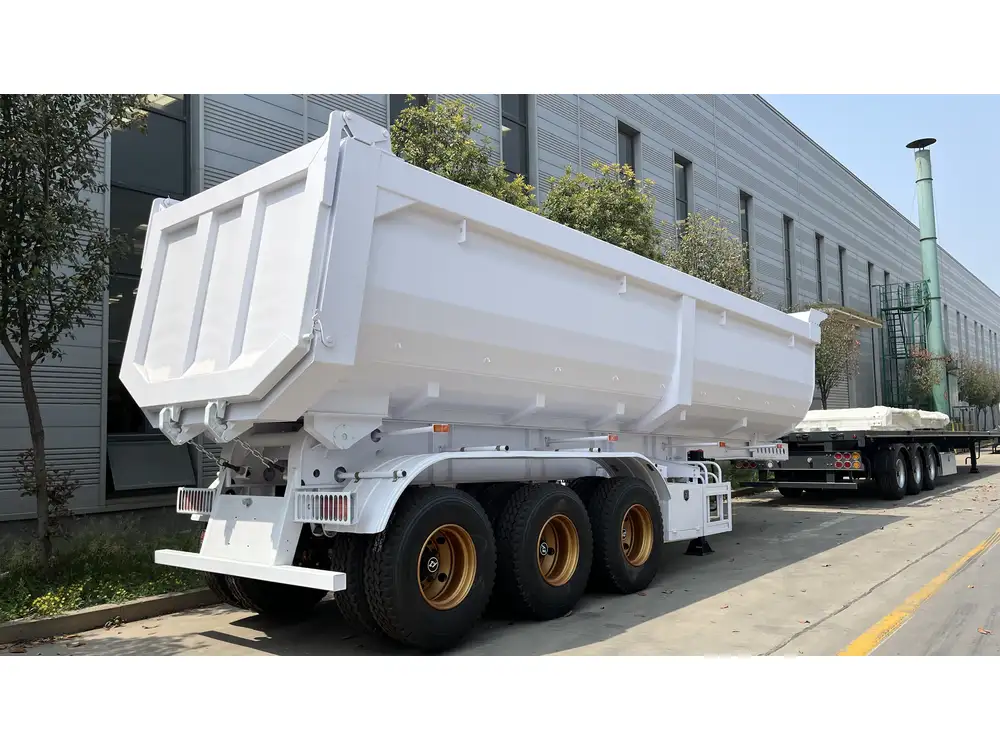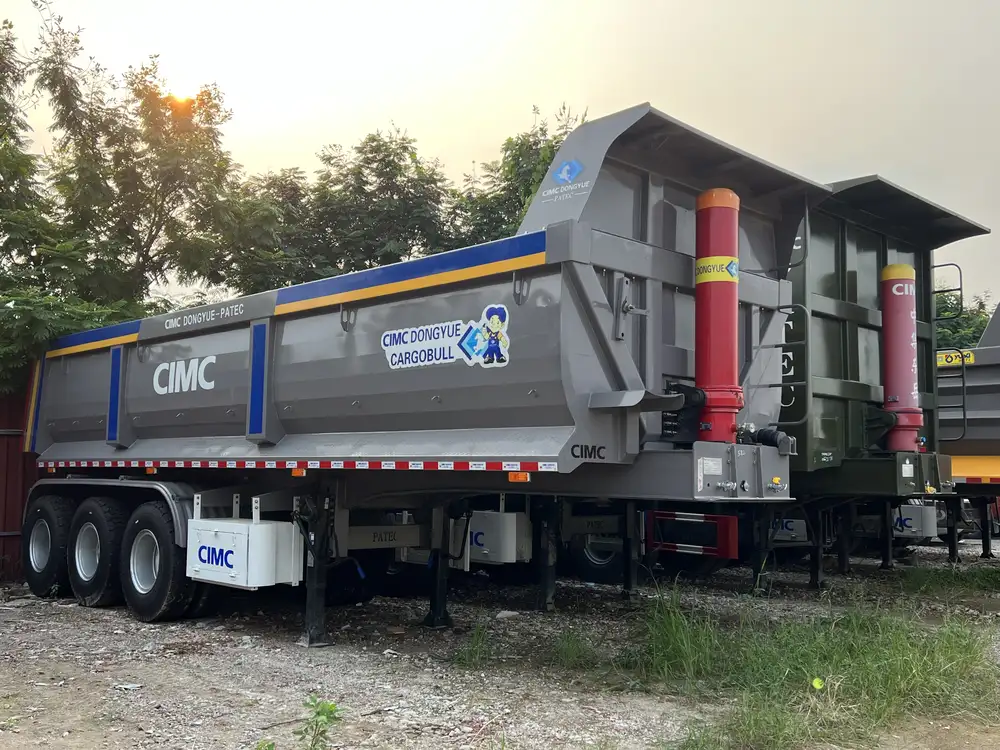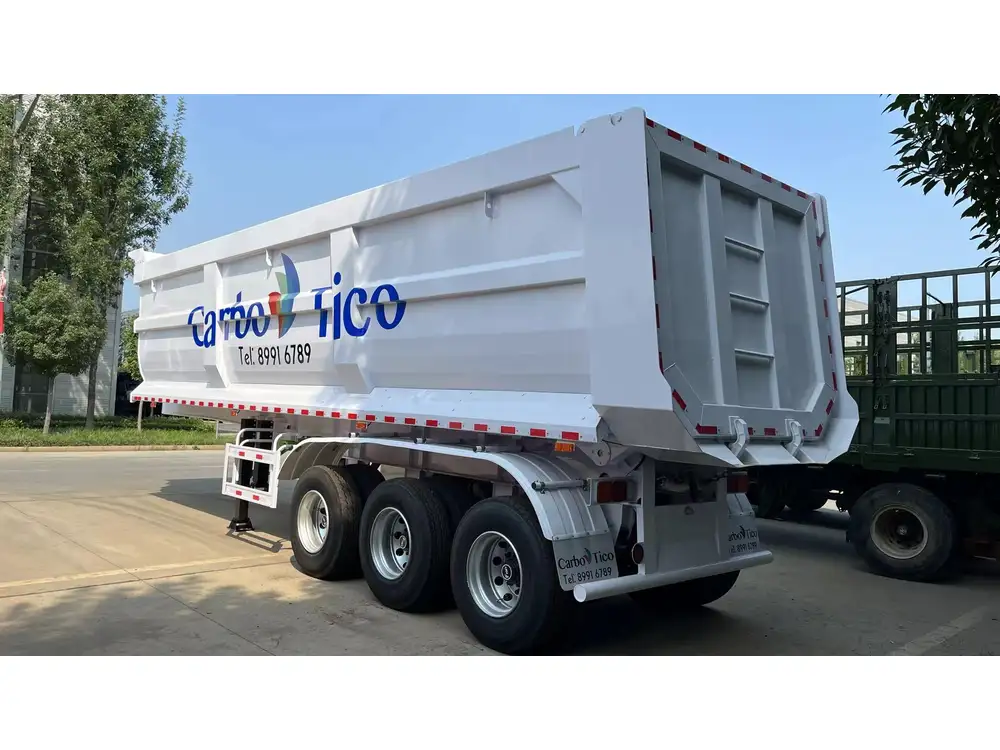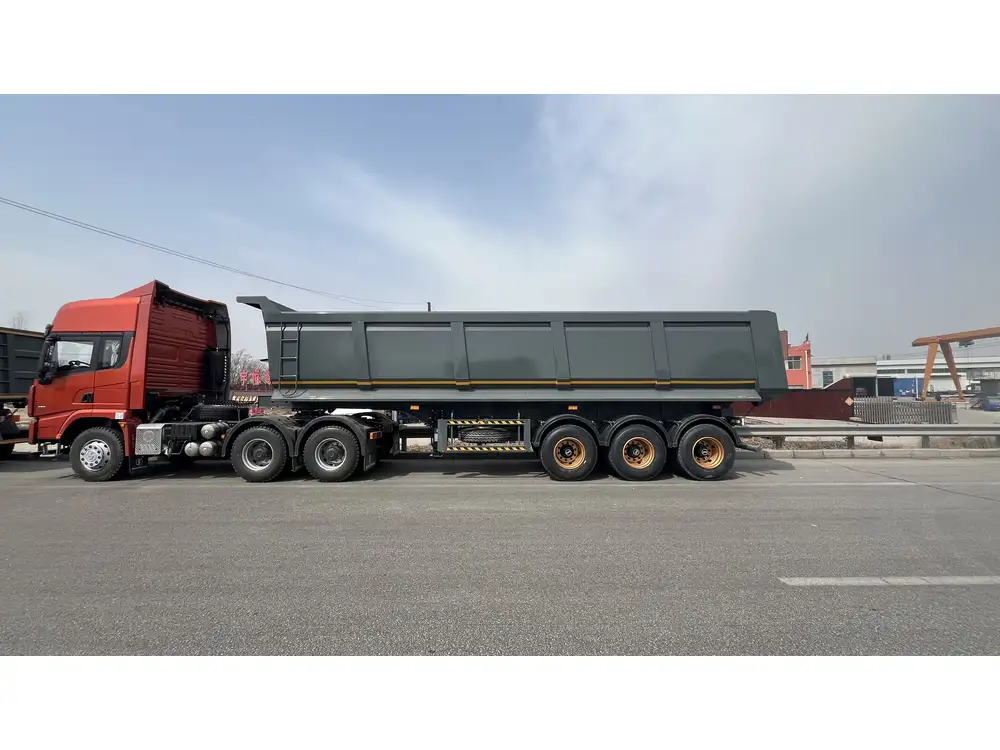Dump trailers are invaluable for a host of industrial applications. However, there are times when users encounter operational problems, particularly when the trailer fails to lift as expected. If you’re in this scenario, worry not. We’ll delve into the potential causes and provide a comprehensive framework for troubleshooting the issue.
Common Issues in Dump Trailers That Affect Lifting
Understanding the mechanisms behind the lift function of a dump trailer can reveal a multitude of pitfalls that could cause malfunction. Below, we categorize potential issues into mechanical, electrical, and hydraulic causes.
1. Mechanical Issues
A. Faulty Hydraulic Cylinder
- Symptoms: Inconsistent lift or no lift at all.
- Potential Causes:
- Wear and tear from heavy usage.
- Damaged seals leading to leaks.
- Misalignment due to improper mounting.
B. Rust and Corrosion
- Symptoms: Sluggish operation or jamming.
- Potential Causes:
- Prolonged exposure to moisture.
- Lack of preventive maintenance.
C. Frame Damage
- Symptoms: Uneven lifting or irregular stability.
- Potential Causes:
- Cracks or bends in the trailer frame.
- Improper loading or overloading.
| Issue | Symptoms | Solutions |
|---|---|---|
| Faulty Hydraulic Cylinder | No lift or inconsistent lift | Inspect seals, replace cylinder if damaged |
| Rust and Corrosion | Jamming or sluggishness | Clean and apply protective coatings |
| Frame Damage | Uneven lifting | Inspect frame, reinforce or replace if necessary |

2. Electrical Issues
A. Battery Problems
- Symptoms: Inability to power hydraulic lift.
- Potential Causes:
- Dead or weak battery due to age or misuse.
- Poor connections leading to inadequate power delivery.
B. Wiring and Connections
- Symptoms: Intermittent power issues.
- Potential Causes:
- Damaged or frayed wires.
- Loose connections impacting the flow of electricity.
C. Control Switch Malfunction
- Symptoms: No response from the lifting mechanism.
- Potential Causes:
- Defective switch due to wear.
- Corrosion hindering electrical flow.
| Issue | Symptoms | Solutions |
|---|---|---|
| Battery Problems | Lift failure | Test and replace battery |
| Wiring and Connections | Power issues | Inspect and repair wiring |
| Control Switch Malfunction | No response | Replace the switch |
3. Hydraulic System Problems
A. Low Hydraulic Fluid
- Symptoms: Slow or inconsistent lift.
- Potential Causes:
- Undetected leaks in the hydraulic system.
- Improper fluid maintenance schedules.
B. Air Trapped in the System
- Symptoms: Irregular operation.
- Potential Causes:
- Incomplete bleeding of the hydraulic lines after service.
C. Damage to Hydraulic Hoses
- Symptoms: Hydraulic fluid leaks.
- Potential Causes:
- Excessive wear from friction.
- Exposure to chemicals that degrade the material.
| Issue | Symptoms | Solutions |
|---|---|---|
| Low Hydraulic Fluid | Slow lift | Check for leaks, refill fluid |
| Air Trapped in the System | Irregular operation | Bleed the system |
| Damage to Hydraulic Hoses | Fluid leaks | Inspect, replace hoses as needed |
Step-by-Step Troubleshooting Process

Step 1: Inspect the Basic Components
Start by visually inspecting the hydraulic components to check for any visible damage. Look at the hydraulic cylinder, lines, and fittings for leaks or kinks. Make sure that the trailer is on level ground during this inspection.
Step 2: Test Electrical Systems
Engage the lift switch while observing the battery gauge. If the gauge reads low, ensure that the connections are secure. Investigate the battery voltage with a multimeter, ideally looking for 12 volts or above.
Step 3: Check Hydraulic Fluid Levels
Monitor the hydraulic reservoir. If the fluid is low, refill it according to the manufacturer’s specifications. Always use the recommended hydraulic fluid type.

Step 4: Identify Air Traps
If lifting is inconsistent, bleed the hydraulic lines. Locate the bleed valve, open it, and allow air to escape until a steady stream of fluid appears. Close the valve promptly to avoid excess fluid loss.
Step 5: Evaluate for Mechanical Damage
Examine the trailer frame and hydraulic cylinder for any signs of physical deformation. Check for rust and corrosion, utilizing sandpaper or a wire brush for cleaning affected areas before applying protective coatings.
Step 6: Perform a Secondary System Check
As a final check, engage or disengage the entire hydraulic system to look for any unresponsive areas.

Preventive Maintenance to Ensure Optimal Performance
To prevent your dump trailer from encountering lifting issues in the future, adhere to a routine maintenance schedule. Below are some recommended maintenance tips:
- Regularly Inspect the Hydraulics: Allow a thorough visual check and testing of the hydraulic system.
- Change Hydraulic Fluid: Follow the manufacturer’s guidelines for changing hydraulic fluid to keep the system functioning optimally.
- Clean and Lubricate: Apply lubrication to moving parts to minimize friction and wear.
- Inspect Electrical Connections: Regularly check and tighten electrical connections to prevent power-related issues.
- Agent for Rust Prevention: Use protective coatings to guard against rust and corrosion.
Maintenance Schedule Overview
| Frequency | Task |
|---|---|
| Monthly | Inspect hydraulic fluid and battery |
| Quarterly | Comprehensive check of the wiring and connections |
| Annually | Change hydraulic fluid and inspect the entire system for damages |
Frequently Asked Questions

Q1: What should I do if my trailer is leaking hydraulic fluid?
Address leaks immediately. Identify the location of the leak and determine whether it’s from a hose, the cylinder, or the hydraulic fluid tank. Replace any damaged components or seals.
Q2: Can I use regular oil in a hydraulic system?
No, it’s crucial to use hydraulic oil as specified by the manufacturer, as regular oil does not have the same properties necessary for hydraulic lifting systems.
Q3: How can I tell if my hydraulic pump is failing?
Signs of a failing pump include unusual noises, overheating, or insufficient pressure in the system. It’s advisable to consult with a technician in such instances.

Q4: Why does my dump trailer lift only a little?
This can result from low hydraulic fluid levels, air trapped in the system, or malfunctioning cylinders. Follow the troubleshooting steps outlined to address the cause.
Q5: What are the benefits of regular maintenance for a dump trailer?
Regular maintenance extends the life of the dump trailer, enhances performance, prevents unexpected downtimes, and ultimately saves on repair costs.
Conclusion
Identifying the reasons behind a non-lifting dump trailer involves careful examination of mechanical, electrical, and hydraulic systems. By methodically troubleshooting the issue, you can save both time and resources while ensuring your equipment’s longevity. With the right maintenance and preventive measures in place, your dump trailer can effortlessly meet your operational demands, enabling you to focus on productivity without the burden of unexpected equipment failures.
By following the guidelines provided, you will not only enhance the performance of your dump trailer but also safeguard your investment against anticipated wear and errors. If you encounter issues that are more complicated than the scope of basic repairs, do not hesitate to contact a professional for assistance.



